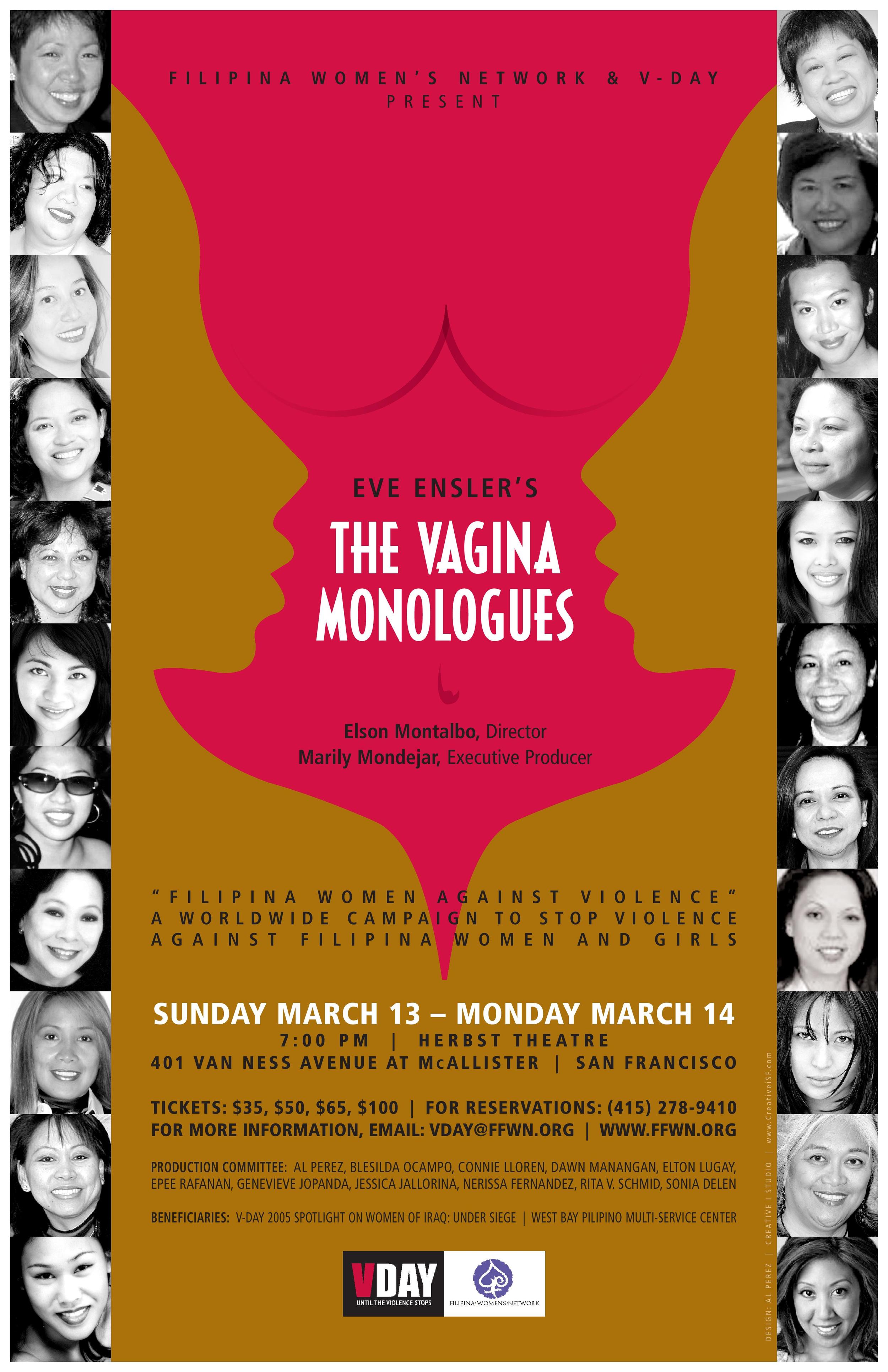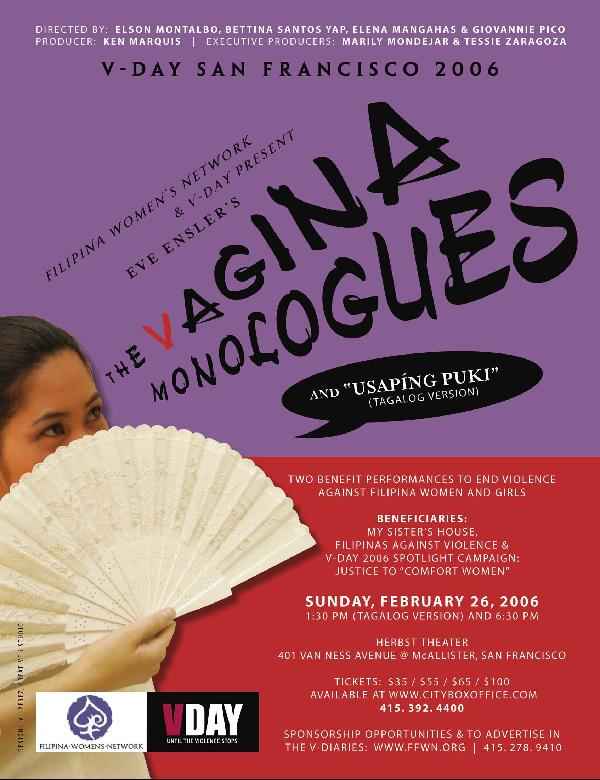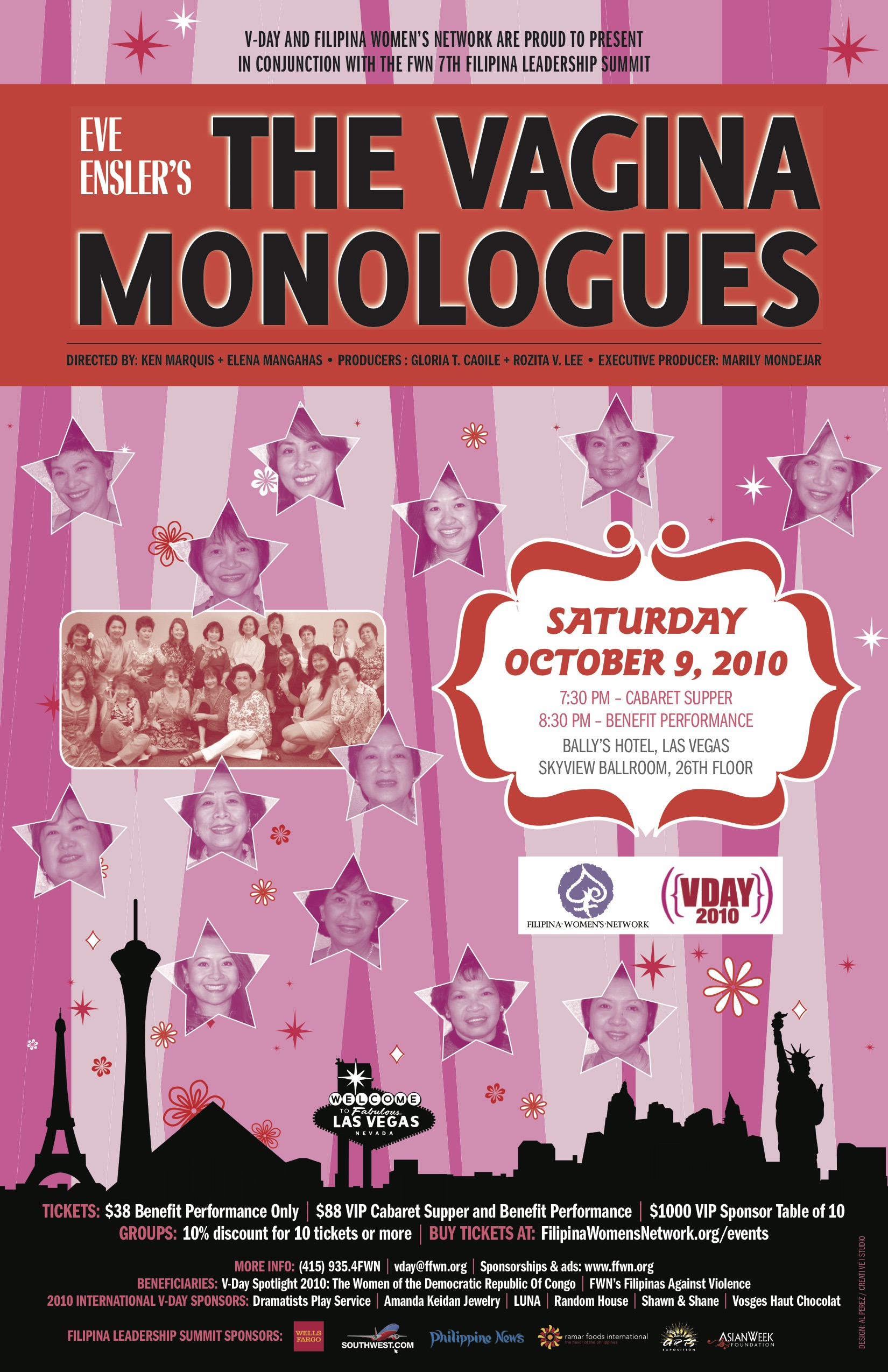Violence against women takes shape in a multitude of forms including domestic violence, stalking, rape, sexual assault, the trafficking of women and children, date rape, verbal abuse, harassment and hate crimes.
Join the chorus of voices around the WORLD, as we say "NO" to violence against Women of Color. Bring your grandmother, your mother, your wife, your aunt, your sister, your daughter, your niece, your friend. Empower them. Free them. Bring the men in your lives, too. Let us all help stop the madness.
The Filipina Women's Network advocates for an education campaign to raise awareness about the violence being perpetrated against Women. Consider the following statistics:
41 – 61% of Asian women report experiencing physical and/or sexual violence by an intimate partner during their lifetime.
Source: A. Raj and J. Silverman, Intimate partner violence against South-Asian women in Greater Boston Journal of the American Medical Women’s Association.56% of Filipinas and 64% of Indian and Pakistani women had experienced sexual violence by an intimate in a study interviewing 143 women.
Source: Yoshihama M, Bybee D, Dabby C, Blazevski J. Lifecourse Experiences of Intimate Partner Violence and Help-Seeking among Filipino, Indian and Pakistani Women: Implications for Justice System Responses. Washington, DC: National Institute of Justice; 2011.5,200 – 7,800 Asians and Pacific Islanders comprise the largest group of people trafficked into the U.S., out of an estimated total of 14,500-17,500 individuals trafficked in 2004.
Source: U.S. Department of Justice. Assessment of U.S. Government Activities to Combat Trafficking in Persons.68% of Filipinas and 50% of Indian and Pakistani women reported being stalked by an intimate partner.
Source: Yoshihama M, Bybee D, Dabby C, Blazevski J. Lifecourse Experiences of Intimate Partner Violence and Help-Seeking among Filipino, Indian and Pakistani Women: Implications for Justice System Responses. Washington, DC: National Institute of Justice; 2011.
Research shows that children who witness domestic violence show more anxiety, low self esteem, depression, anger and temperament problems than their peers. They are at greater risk for abuse and neglect as children and to become abusers themselves as adults.
Family Violence Prevention Fund. Fact Sheet: The Effects of Domestic Violence on Children. San Francisco, CA: Author; (n.d.).
Statistics from: Asian-Pacific Institute on Gender-Based Violence
v-DAY Filipina Women's Network London 2018
The Vagina Monologues
Saturday, September 15 • 7:30 pm • St. Pancras Renaissance Hotel
London, UK
THIS IS OUR 13th YEAR
Since 2003, FWN has collaborated with V-DAY, empowering and celebrating women and their sexuality with a festival of theatre, comedy, and the spoken word, highlighted at benefit performances in San Francisco, New York, Las Vegas, Washington, DC., Toronto, Canada and now, London UK.
Ticket Information:
$50 - General Admission
$140 - VIP seating
10% discount on 10 tickets or more
Buy Tickets Here
STOP THE VIOLENCE. GET INVOLVED.
Production and editorial volunteers needed. Contact vday@ffwn.org • 415.935.4FWN
Can't make it to the show?
Two other ways to support:
1) Sponsor a resident or staff member of a domestic violence shelter or agency so she can come to the show
2) Sponsor a cast member
Be a friend. Be a sponsor. Help FWN publish the V-Diaries: Anti-Violence Resource Guide so we can spread the word that help is available for women who want to leave abusive relationships.
Place a sponsor ad in the V-Diaries: Anti-Violence Resource Guide
““Domestic violence causes far more pain than the visible marks of bruises and scars. It is devastating to be abused by someone that you love and think loves you in return. Approximately 3 million incidents of domestic violence are reported each year in the United States.”
”
WHAT ARE THE VAGINA MONOLOGUES?
An Obie Award-winning whirlwind tour of a forbidden zone, The Vagina Monologues introduces a wildly divergent gathering of female voices, including a six-year-old girl, a septuagenarian New Yorker, a vagina workshop participant, a woman who witnesses the birth of her granddaughter, a Bosnian survivor of rape, and a feminist happy to have found a man who “liked to look at it.”
V-Day FWN 2016 San Francisco
V-Day FWN 2009 APA San Francisco
The glaring statistics show that silence, shame and victim-blaming prevent many women from getting the support they need to end abuse in their homes and relationships. Stop the silence! Stand in solidarity with our sisters. #FWNAgainstViolence
In the Project AWARE Study*
44.8% of the Asian women surveyed reported that they or other Asian women they knew to have been abused did “nothing” to protect themselves from abusive events; 32.1% said they “kept quiet.” The report’s authors noted that “Doing nothing can serve as a strategy of resistance in an attempt [to] avoid or lessen abuse.”
34.3% sought help from their family, and 32.1% from friends. Only 15.7% reported having called the police, and 9.0% actually obtained help from an agency.
78.0% (the majority of women) who confided in someone about their experience of abuse felt better afterwards, but 35.4% indicated that they felt ashamed.
* McDonnell KA, Abdulla SE. Project AWARE: Research Project. Washington, DC: Asian/Pacific Islander Domestic Violence Resource Project; 2001.





























